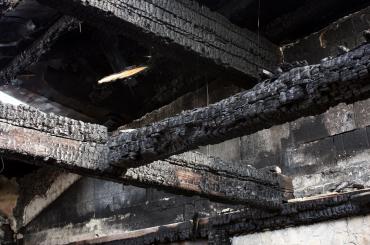
March 19 2019

In the UK, the fire investigation profession is very much under the umbrella of forensic science.
In recent years, there has been a strong push to have all forensic disciplines conform to accreditation standards – either ISO 17025 “Testing and calibration laboratories” or ISO 17020 “Organisations performing various types of inspection, surveys and risk assessments” which has been expanded to include crime scene examination (see note 1, below). For those unfamiliar, ISO 17025 has been the standard in ‘core’ forensics laboratories for many years now.
Not unsurprisingly, with fire investigation as part of the Forensic Regulator’s remit, the spotlight would ultimately shine on the fire profession. Last year, the UK’s only accreditation service, UKAS, proposed to expand the remit of ISO 17020 to include fire investigation. This isn’t anything new in itself; one company in the USA (note 2) has already had 17020 accreditation approval, but for fire scene inspection, only.
The intention of a UKAS pilot for fire investigation is to have an ISO 17020 scope that covers not only inspection of a fire scene, but also determination of the origin, cause and classification. This raises a number of questions.
The ISO 17020 pilot is up and running and, although I believe fire scene attendance can readily be covered by 17020, when it comes to origin, cause and classification, how do you show someone is competent to form these opinions? ISO17020 accredits the framework through which you work but does not accredit opinions.
The Forensic Regulator’s Codes of Practice and Conduct (note 3) discusses in detail the ability to validate any methodology used to underpin the results found. The Code is very much dovetailed into the ISO17025 and 17020 standards, but in recent evidence to the House of Lords Science & Technology Committee review on forensic science in the UK, the Forensic Regulator mentioned consideration of other ways to achieve the goal of quality standards across the forensic disciplines, like individual certification (note 4). Is individual certification a better way to show competence in fire investigation compared to ISO 17020?
Perhaps Fire Investigation is an area where certification may come into its own. For example, getting a Diploma in Fire Investigation or Certified Fire Investigator (CFI) is not an easy feat and requires progression through the same kinds of steps as someone becoming a Chartered Engineer. Being certified carries a base level of implied competence. In addition, the CFI qualification has to be renewed every 5 years, through a combination of accredited training modules and work experience. Recertification is not one of those “pay and display” qualifications; you have to be able to demonstrate that you are keeping up with training, development and experience.
Our profession needs to have a set of books and articles that are generally accepted as being reliable and useful. At the moment, despite the push for a quality standard for fire investigation in whatever form it comes, a list of reading material is conspicuously absent from the Fire Investigation Code of Practice (note 5). Even NFPA 921 (note 6) and Kirk’s Fire Investigation (note 7) are not listed, both arguably the most recognised teaching texts in our profession.
There is no doubt the next 1-2 years will be both interesting and challenging. I hope that those in the process of accreditation or whatever quality system we settle on will share their experiences through groups like the UK-AFI who serve our profession so diligently.
Watch this soot-filled space…
Dr David Schudel, Certified Fire Investigator